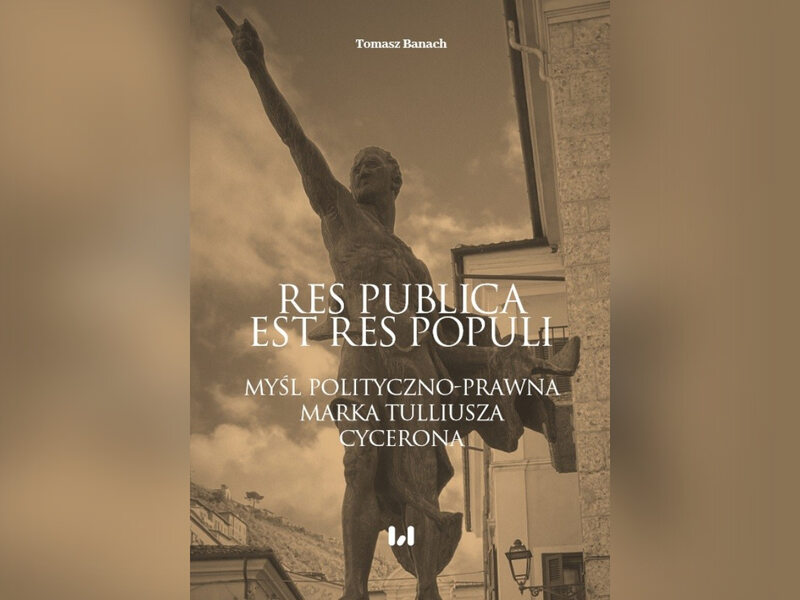
Marcus Tullius Cicero (106-43 BC) is known primarily as a Roman philosopher, orator, and politician whose prolific writings greatly influenced the shape of Latin civilization. Suffice it to say that Cicero's maxims and sayings, such as salus rei publicae suprema lex, summum ius summa iniuria, cedant arma togae or the famous incipit Quousque tandem abutere, Catilina, patinia nostra, are among the most famous Latin maxims.
The Republic of Poland as a common cause
The author of a new book on Cicero analyzes an important aspect of Arpinata's literary legacy, namely his political and legal thought. Common good, commonwealth (utilitas rei publicae) plays the main role in this idea. For Cicero, “the republic is the common cause” (res publica est res populi), which means that it is the business of all citizens, not the business of individual citizens or of one citizen seeking his own advantage. Therefore, the republic must be free – free from tyrants. This freedom is guaranteed by a number of institutional solutions, but we must remember that in Cicero's reflection, the proper functioning of political institutions is determined by civil morality (virtus).
As the author points out, Cicero's political and legal works (De re publica and Delegibus) were mainly a reaction to the growing conflicts and divisions in the Polish-Lithuanian Commonwealth, which posed a threat associated with political change leading to tyranny. . Cicero, who wants to avoid the disintegration of Roman political society and seek mutual understanding and agreement (concordia), presents three models: the best system, the best politician, and the best laws. The author of the book analyzes in detail the distinguished categories, pointing out a number of relationships that are the key to reading Cicero's constitutional reflection.
Dmovsky is the successor of Cicero
It should also be noted that in the last chapter dedicated to the eternity of Cicero's reflections, the author interestingly compares the concepts of Cicero's republic with Dmovsky's national state and points out many analogies, both in political and socio-political aspects. In the context of these analogies, Dr. Tomasz Banach, in summary, notes that only by considering the interdependence of the individual categories of Cicero's constitutional reflection, as Dmowski did, “can we speak of Roman republicanism – a republicanism that can respond to the challenges of contemporary political and legal reality.”
Also read:
Cicero. The Roman Republic died with himAlso read:
Mark Antony. A great leader or a vengeful opponent of Octavian?
(tags translated) Cicero
